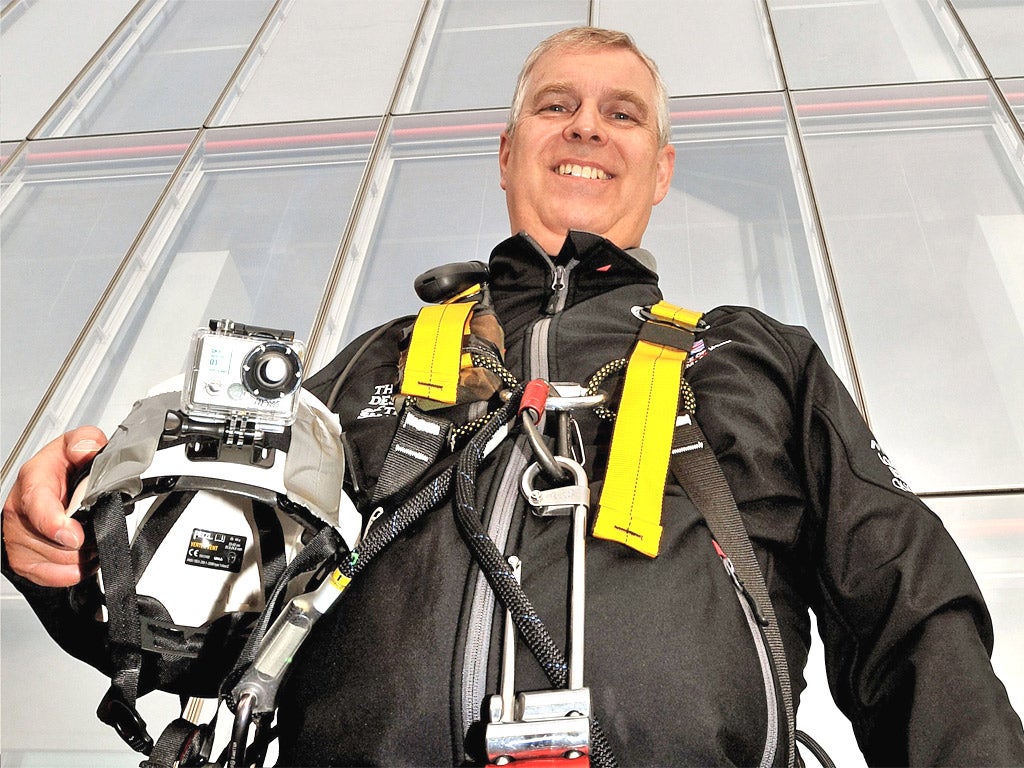Dukes of York don’t belong in our Royal Society
The election of Prince Andrew - with just 11 per cent of the eligible vote - does nothing to promote the reputation of science. Quite the opposite, in fact

Your support helps us to tell the story
From reproductive rights to climate change to Big Tech, The Independent is on the ground when the story is developing. Whether it's investigating the financials of Elon Musk's pro-Trump PAC or producing our latest documentary, 'The A Word', which shines a light on the American women fighting for reproductive rights, we know how important it is to parse out the facts from the messaging.
At such a critical moment in US history, we need reporters on the ground. Your donation allows us to keep sending journalists to speak to both sides of the story.
The Independent is trusted by Americans across the entire political spectrum. And unlike many other quality news outlets, we choose not to lock Americans out of our reporting and analysis with paywalls. We believe quality journalism should be available to everyone, paid for by those who can afford it.
Your support makes all the difference.The Royal Society “for the improvement of natural knowledge” was founded in 1660, during the scientific revolution that heralded the age of Enlightenment. Its name stems from the fact that it was granted as Royal Charter by King Charles II. In those times, long before we had democracy or the idea of a constitutional monarchy, no doubt the royal support was important.
Most fellows are elected on the basis of their scientific achievements, but there is a separate category, “Royal Fellows” who are Members of the Society by virtue of “royal blood” (though “royal blood” is a curiously unscientific concept). Their continued existence might be regarded as a harmless anachronism. Certainly monarchs in recent times have shown little interest in science. If I wanted a tip for the winner of the 14.30 at Newmarket, I’d ask a royal. For most other questions, I wouldn’t.
The patron of the Royal Society is the monarch. If Prince Charles (known affectionately in the blogosphere as the Quacktitioner Royal) were to succeed to the throne, we’d have a patron who once said he was rather proud to have been accused of being an enemy of the Enlightenment.
Deference to royalty seems to run deep in the British psyche, but it is taking deference too far to elect Prince Andrew, Duke of York, as a royal fellow. Last week, 11 per cent of the eligible voters elected him, but 87 per cent didn’t even bother to return the voting form.
Prince Andrew has a chequered past. From the leak of US diplomatic cables in 2010 we know, through cables from the US Ambassador to Kyrgyzstan, some unsavoury facts. The Duke “railed at British anti-corruption investigators, who had had the ‘idiocy’ of almost scuttling the Al-Yamama deal with Saudi Arabia”. In 2011 he got more bad press after revelation of his close friendship with Jeffrey Epstein, who was convicted in Florida for soliciting an underage girl for prostitution. In July 2011, his role as a trade representative was ended. Last year he was criticised for his close friendship with the brutal and corrupt president of Azerbaijan, Ilham Aliyev.
We were told that the Duke had been nominated because of his help in chairing meetings and because of his connections with industry (the citation made no mention of the unsavoury stuff). I’m not convinced that young scientists will be impressed by royal flummery, and the Royal Society is surely capable of making industrial contacts on its own.
One attraction of science for me has always been that it is one of very few occupations where you can put honesty above expediency. The election of Prince Andrew does nothing to enhance the honesty of science. Election should be a matter of scientific merit alone.
Professor David Colquhoun is a pharmacologist. His blog, Improbable Science, is at dcscience.net
Join our commenting forum
Join thought-provoking conversations, follow other Independent readers and see their replies
Comments